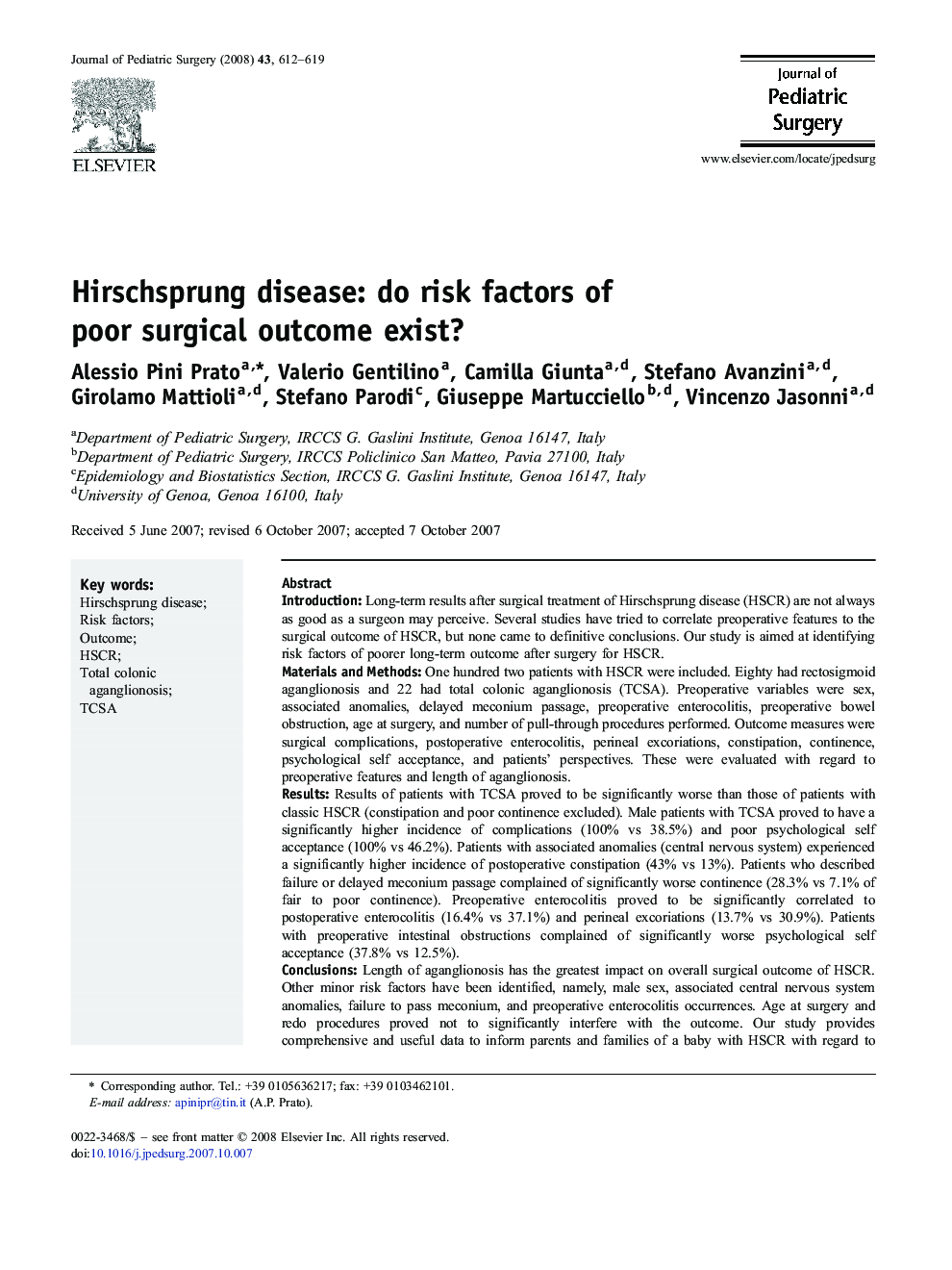| Article ID | Journal | Published Year | Pages | File Type |
|---|---|---|---|---|
| 4159418 | Journal of Pediatric Surgery | 2008 | 8 Pages |
IntroductionLong-term results after surgical treatment of Hirschsprung disease (HSCR) are not always as good as a surgeon may perceive. Several studies have tried to correlate preoperative features to the surgical outcome of HSCR, but none came to definitive conclusions. Our study is aimed at identifying risk factors of poorer long-term outcome after surgery for HSCR.Materials and MethodsOne hundred two patients with HSCR were included. Eighty had rectosigmoid aganglionosis and 22 had total colonic aganglionosis (TCSA). Preoperative variables were sex, associated anomalies, delayed meconium passage, preoperative enterocolitis, preoperative bowel obstruction, age at surgery, and number of pull-through procedures performed. Outcome measures were surgical complications, postoperative enterocolitis, perineal excoriations, constipation, continence, psychological self acceptance, and patients' perspectives. These were evaluated with regard to preoperative features and length of aganglionosis.ResultsResults of patients with TCSA proved to be significantly worse than those of patients with classic HSCR (constipation and poor continence excluded). Male patients with TCSA proved to have a significantly higher incidence of complications (100% vs 38.5%) and poor psychological self acceptance (100% vs 46.2%). Patients with associated anomalies (central nervous system) experienced a significantly higher incidence of postoperative constipation (43% vs 13%). Patients who described failure or delayed meconium passage complained of significantly worse continence (28.3% vs 7.1% of fair to poor continence). Preoperative enterocolitis proved to be significantly correlated to postoperative enterocolitis (16.4% vs 37.1%) and perineal excoriations (13.7% vs 30.9%). Patients with preoperative intestinal obstructions complained of significantly worse psychological self acceptance (37.8% vs 12.5%).ConclusionsLength of aganglionosis has the greatest impact on overall surgical outcome of HSCR. Other minor risk factors have been identified, namely, male sex, associated central nervous system anomalies, failure to pass meconium, and preoperative enterocolitis occurrences. Age at surgery and redo procedures proved not to significantly interfere with the outcome. Our study provides comprehensive and useful data to inform parents and families of a baby with HSCR with regard to expected results and long-term outcomes of surgery basing on preoperative features. Further studies on larger series are strongly recommended.
